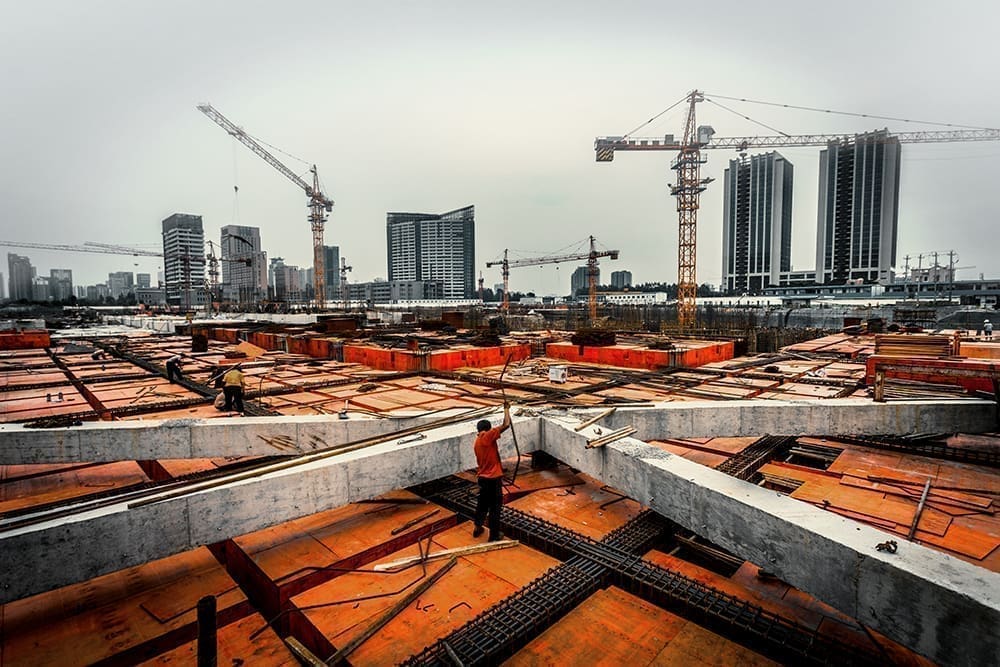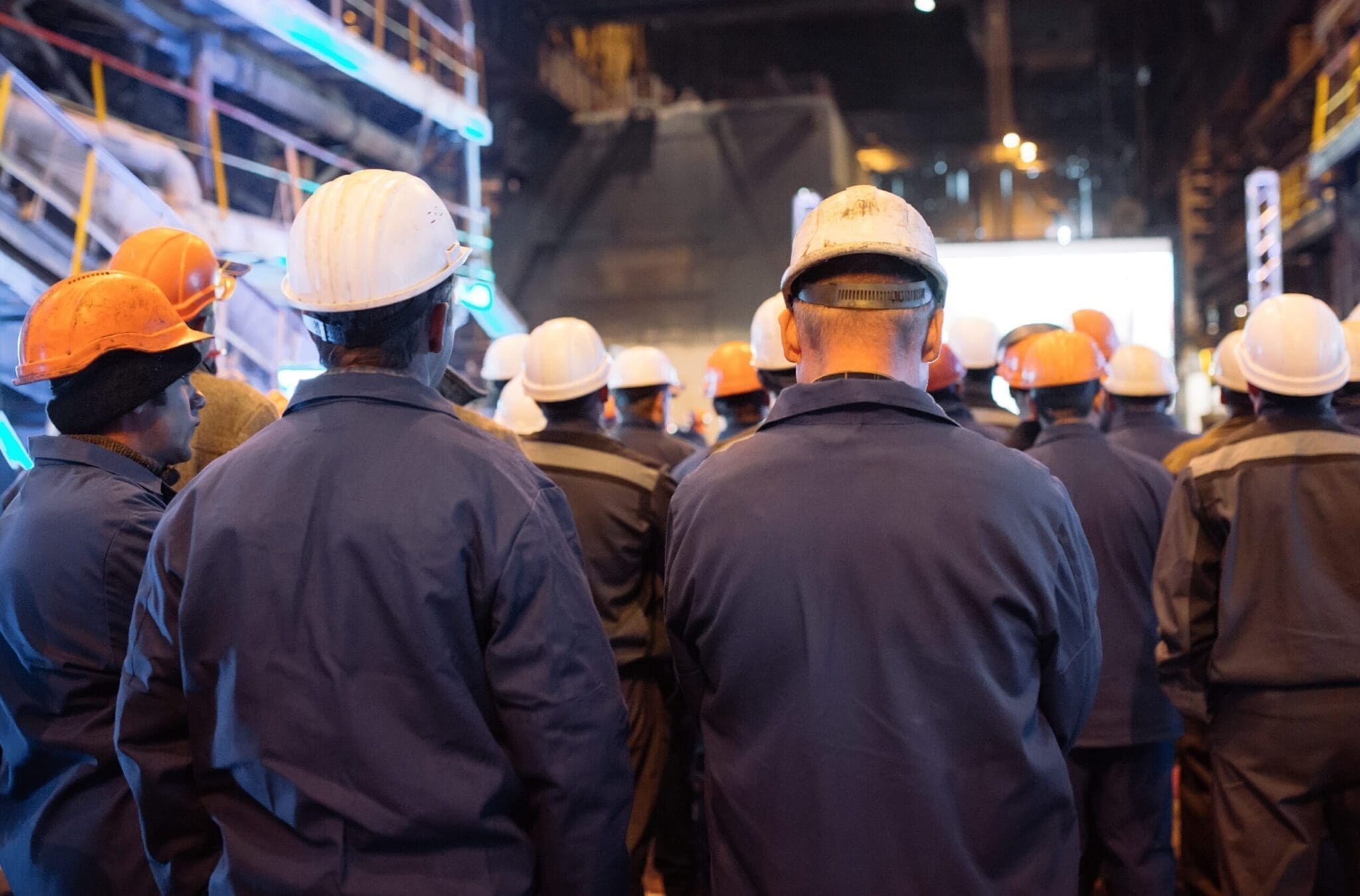The construction sector is one of the most vibrant sectors of the UK economy. Expected to reach a market size of around £166 million by the end of the year, construction companies employ more than 2.2 million people nationwide. But while many firms are striving to meet sustainability and carbon reduction targets, the sector faces challenges in ethically managing labour.
In 2022, UK Independent Anti-Slavery Commissioner, Dame Sara Thornton, released an annual report, detailing labour standards in construction and its related industries. In the report, Dame Thornton drew on one of the largest anti-slavery investigations in UK history, Operation Cardinas, to highlight issues throughout the construction sector. Using insights from Achilles’ Ethical Business Programme Trends Report, the report detailed shortcomings and risks to businesses operating in the construction sector.
The changing face of modern slavery in construction
Construction companies operate in a highly competitive sector with low margins. For this reason, many firms choose to sub-contract or use agency staff to complete projects. But with so many suppliers competing for a limited number of contracts, many are seeking a competitive pricing advantage by any means necessary. Although rare, the report highlighted that in some cases, some suppliers may circumvent labour standards to increase their attractiveness.
Such cases are rare and are at an extreme end of the spectrum. However, Dame Sara Thornton’s report used the example of Operation Cardinas to highlight complex ways that by sub-contracting labour workers, construction firms can – either knowingly or unknowingly – become entangled in unethical labour practices.
Operation Cardinas brought multiple crime networks operating throughout the construction industry to light. These firms used forced labour, and in some extreme cases, human trafficking to complete construction projects throughout the UK. In one case, a criminal network had placed up to 500 Romanian workers, recruited directly from Romania, in sites throughout the southeast of England. The Metropolitan Police identified at least 33 companies, including contractors, agencies and umbrella firm payroll providers, who had unwittingly been paying into accounts that profited from labour exploitation.
While exploitation in the construction industry is by no means the norm, the report considered the growing pressures many construction firms are under to keep operating revenues competitive. While existing levels of compliance mean that firms must meet ethical labour initiatives, environmental certifications, health and safety programmes and other high compliance standards, the challenging global picture for some suppliers is exacerbating some businesses’ commitments to ethical employment.
Construction businesses are under growing pressure
The UK’s departure from the European Union has made ongoing skills shortages in domestic labour markets, normally offset by the immigration of highly skilled construction workers, more acute. Changes to immigration law mean that firms can no longer place skilled workers in vacancies, meaning that they need to find alternative ways to fill the rising number of job vacancies.
Labour and skills shortages continue to be a problem, but the changing global picture for some firms is also leading to further challenges. Rising inflation is posing a problem for both businesses and suppliers, which of course is impacting the bottom line. Added to that, shortages in building materials has seen a sharp increase in delays in some construction projects, which can lead to financial penalties. To compound issues further, an inflationary economic environment is forcing companies to compensate for a real-term loss in available income. Sparked by pandemic-era government stimulus and the war in Ukraine, our quarterly ASCRI (Achilles Supply Chain Resilience Index) indicates that in both advanced and developing economies, inflation will continue to rise and could sit anywhere between 5.7% and 8.7% in 2022, before slowly receding in the years to come.
To highlight the levels of ethical employment in the UK, the report drew on insights from Achilles’ Ethical Business Programme. Our programme is a single standard through which companies, such as British Land, Skanska, Cadent and Costain, can identify ethical employment practices throughout their supply chains, by mapping the suppliers and supply chains that businesses currently use.
The results show that some construction businesses in the UK don’t always meet high standards of employment throughout their operations. Using data from 1,368 anonymised workers’ responses and 48 management system audits gathered over 12 months, we found widespread poor practice in many construction sites, with three issues commonly identified throughout.
- Eligibility to work: As many as 26% of companies had not requested or verified appropriate right to work documentation, meaning that businesses run the inadvertent risk of employing workers without the necessary right to work.
- Wage deductions: 17% of workers reported having up to 25% of their weekly wage deducted via a range of non-standard deductions.
- Employment terms and conditions: 11% of businesses had not communicated terms with indirectly employed labour, leaving some workers without any knowledge or means to communicate grievances.
Stakeholder collaboration is key
Despite finding a concerning picture within the construction industry, the report concluded by making key recommendations to businesses using suppliers when working on projects.
Building internal capability
Building internal capability means that construction firms can ensure the right standards are met throughout their operations. From directly employing workers, to modern slavery groups and better education and training, businesses concerned about the consequences of outsourcing to sub-contractors should look to develop in-house teams, with clearly outlined policies, strategies and awareness of best practices.
Working with suppliers
When working with suppliers, businesses should look to pre-qualify them via compliance and accreditation organisations. In cases where potential suppliers don’t currently qualify for certain employment standards, businesses should look to train them to meet best practice standards, and should carry out regular audits to ensure that improvements are being made.
Multi-stakeholder initiatives
With many construction firms leveraging global supply chains, a collaborative approach is necessary to ensure that the right standards are being upheld in each sector and region. The Achilles Ethical Business Working Group brings together leaders from across different industries. Helping businesses engage with industry and third sector expertise is crucial in co-ordinating a collective effort against forced labour.
Monitoring supply chains
We can help your business monitor labour compliance throughout your supply chains. At Achilles, we gather insight on everyone in your supply chain – including subcontractors – to ensure workers are treated fairly. We provide an additional level of rigour to your code of conduct, CSR and modern slavery statements.
Learn more about how you can mitigate the risk of unethical practices in your business and supply chain.


